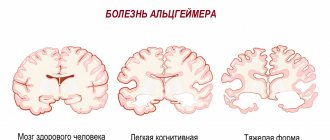Even in Greek philosophy and medicine, the idea of the influence of the soul and spirit on the human body was widespread. Translated from Greek, “psycho” means soul, and “soma” means body. The soul and body are inextricably linked - Hippocrates, Plato, Aristotle spoke about this. The term “psychosomatics” will soon be two hundred years old; it was coined in 1818 by the German physician Heinroth.
Psychosomatic diseases are diseases of internal organs and systems that arise as a result of mental ill-being.
Psychotherapists say: any disease first arises in the subconscious and only then manifests itself at the body level. That is, most of our ailments are associated with unresolved internal problems. The main psychological causes of illnesses are anger, envy, anxiety and guilt.
Many scientists believe that 80% of all diseases are actually psychosomatic. Our well-being depends on our thoughts, mood, ability to find and see positive things, beauty and enjoy it all. The state of health is associated with the ability to be happy, character traits, attitude to successes and failures at work, and everyday problems.
According to the psychoanalytic theory of Sigmund Freud, symptoms and diseases of various organs are a symbolic language with the help of which the body wants to communicate repressed mental conflicts.
Almost half of all human diseases can be psychosomatic in nature. Among them are diseases:
- heart and blood vessels (arterial hypertension, hypertension, rheumatism, vegetative dystonia, coronary heart disease, heart rhythm disturbances, heart attacks)
- gastrointestinal tract (peptic ulcer of the stomach and duodenum, ulcerative colitis, biliary dyskinesia)
- nervous system (chronic headaches, tension pain, dizziness)
- skin (neurodermatitis, relapses of psoriasis)
- gynecological, including those related to the woman’s reproductive cycle (premenstrual tension syndrome, gestosis, postpartum depression)
- endocrine
- and many others.
Psychosomatics is...
The word “psychosomatics” consists of two parts: “psycho” ( soul ) and “somo” ( body ). This term demonstrates the close relationship between the body and the psyche, namely how disorders of the soul result in illnesses of the body.
Psychosomatics is the study of illness from two sides : psychology and medicine. The fact is that many diseases appear in the body under inexplicable circumstances (at first glance).
For example, just yesterday a person had a healthy heart and there were no signs of trouble, but today he is given a serious diagnosis, while a hereditary factor is also excluded: the disease appeared as if out of nowhere. After some time, the same core can become healthy again, as if it had never been sick.
Freud was the first to talk about such “miracles . His theory of the unconscious part of the personality states that the affects (feelings and emotions) repressed by the individual manifest themselves in the body in the form of symptoms. Affect is a strong charge that cannot dissolve on its own and continues to live in the body, influencing the body.
That is, the basis of the psychosomatics of the disease is repression - a protective mechanism of the psyche. It turns on when a person is unable to accept his feelings, since they are too painful for him, and suppresses them, “expelling” them into the realm of the unconscious.
And if the patient is able to realize the suppressed affect and releases it, then the symptom automatically loses its function and disappears as unnecessary.
During many years of psychotherapeutic practice, Freud developed a table of psychosomatics , where he indicated 5 diseases and possible psychological causes of their occurrence.
Currently, the list of psychosomatic disorders has increased significantly in size, thanks to his followers and other scientists.
Diagnosis of psychosomatic disorders
It’s rare that a doctor will immediately suspect a patient is psychosomatic. Typically, such diseases do not differ in appearance from somatic diseases; for example, it is never possible to immediately determine whether a patient’s gastritis is caused by the Helicobacter bacterium or some kind of experience. Very often, doctors diagnose problems with the gastrointestinal tract, cardiovascular system, nervous system or immunity, without even knowing about the patient’s mental trauma.
What does such a diagnosis of the disease lead to? The doctor prescribes medications to the patient that should alleviate his condition and cure the disease. The prescribed treatment really alleviates the symptoms, and the doctor happily releases the patient. But, after the end of the course of treatment, after some time, all the symptoms return, and the doctor begins to look for more effective treatment and stronger medications.
A few years later we have a chronically ill person who takes a mountain of medications and suffers from side effects and the inability to recover. At the same time, in order to alleviate his condition and completely solve the problem, it was necessary to consult a psychotherapist from the very beginning, but either the patient was embarrassed to tell the doctor about his problems, or the doctor did not ask, or both did not suspect it in time, and time was lost.
Since psychosomatic diseases arise as a result of mental disorders affecting the human body, several specialists should be involved in the diagnosis and treatment of these diseases: a psychotherapist and a specialized specialist - a therapist, a neurologist, a cardiologist, an endocrinologist. You need to treat both the soul and the body at the same time.
The role of the psychotherapist is to determine the nature of the emotional state that caused the disease and help the patient cope with them. The development of psychosomatic diseases can be provoked not so much by the presence as by the unexpressed and suppressed emotions of negative emotions. Suppressed and muffled emotions gradually burn out, destroying the human body and provoking the onset of illness.
Almost any negative emotion that is carefully hidden, be it fear, anger, sadness or hatred, sooner or later can find its way out in illness.
Louise Hay's table of psychosomatic illnesses
Louise Hay is an American woman who learned from her own experience what psychosomatics is. One “beautiful” day, doctors discovered that she had oncology – uterine cancer at the last stage.
She was offered emergency surgery, which she refused and treated herself on her own, working on her thinking. Louise devoted the rest of her life to healing people: she conducted training seminars and wrote many books on fighting diseases with the help of positive attitudes (affirmations).
Her entire philosophy is built around the main belief: a person’s thoughts are material, and if you think about yourself and the world exclusively in a negative way, then the body will definitely react with illness. What you sow in your head is what you reap in your body.
table of psychosomatic diseases is very extensive; I will only mention common disorders and their psychological causes:
- Sore throat - a person holds back anger because he is not used to defending himself. Aggression coupled with a feeling of helplessness.
- An allergy is a strong irritation that is suppressed due to certain factors. Children often suffer from allergies because they forbid themselves to express their dissatisfaction with their parents.
- Sexually transmitted diseases are the result of the perception of sex as something dirty, shameful and sinful.
- Migraine is a harsh criticism of oneself, self-doubt, low self-esteem, and fear.
- Constipation - in the table of psychosomatic diseases means a reluctance to change one’s point of view, stereotyping, ossification of character, thoughts about the past.
- Neurosis is a struggle with life, distrust of what is happening, anxiety and fear, the desire to control everything.
- Excess weight symbolizes the protection of one's sensitive self, the inability to stand up for oneself, and an unsatisfied need for security.
- Problems with the spine – a person does not feel support in life and needs help and support.
- Epilepsy is a state of struggle and a feeling of persecution, denial of one's desires and violence against oneself.
- Heart disease indicates a lack of inner joy and callousness of the soul.
- Kidney disease - a feeling of shame, criticism and disappointment from the outside.
- Pancreatitis (what is it?) – a person does not want to accept reality and is angry at what is happening.
- Otitis media is the desire to close your ears and not listen to what is happening around you. Children whose parents often quarrel often suffer from otitis media.
- Runny nose - unshed tears, need for support.
- Stomach problems indicate a reluctance to “digest” events.
The full version of Louise Hay's psychosomatic table can be found in her books. There, for each disease, she offers healing affirmations : positive statements, by pronouncing which people gradually change their thinking, affecting the deepest structures of their psyche.
Table of diseases corresponding to psychological disorders (part 1)
Alcoholism, drug addiction.
- Not being able to cope with something. Terrible fear. The desire to get away from everyone and everything. Not wanting to be here.
- Feelings of futility, inadequacy. Rejection of one's own personality.
Allergy.
- Who can't you stand? Denial of one's own power.
- A protest against something that cannot be expressed.
- It often happens that the parents of an allergic person often argued and had completely different views on life.
Appendicitis.
Fear. Fear of life. Blocking out all the good stuff.
Insomnia.
- Fear. Distrust in the life process. Guilt.
- Escape from life, unwillingness to acknowledge its shadow sides.
Vegetative dystonia.
Infantility, low self-esteem, tendency to doubt and self-blame.
Weight: problems.
Excessive appetite.
Fear. Self-defense. Distrust of life. Feverish overflow and release of feelings of self-hatred.
Obesity.
- Hypersensitivity. Often symbolizes fear and the need for protection. Fear can serve as a cover for hidden anger and unwillingness to forgive. Trust in yourself, in the very process of life, abstaining from negative thoughts - these are the ways to lose weight.
- Obesity is a manifestation of the tendency to protect ourselves from something. The feeling of inner emptiness often awakens the appetite. Eating provides many people with a sense of acquisition. But mental deficiency cannot be filled with food. Lack of trust in life and fear of life’s circumstances plunge a person into trying to fill the spiritual emptiness with external means.
Lack of appetite.
Denial of privacy. Strong feelings of fear, self-hatred and self-denial.
Thin.
Such people do not like themselves, feel insignificant compared to others, and are afraid of being rejected.
And that's why they try to be very kind. Cellulite (inflammation of the subcutaneous tissue).
Accumulated anger and self-punishment. Forces herself to believe that nothing bothers her.
Inflammatory processes.
Fear. Fury. Inflamed consciousness. The conditions you see in life cause anger and frustration.
Hirsutism (excessive hair growth in women).
Hidden anger. The cover commonly used is fear. The desire to blame. Often: reluctance to engage in self-education.
Eye diseases.
The eyes symbolize the ability to clearly see the past, present, and future. Perhaps you don't like what you see in your own life.
Astigmatism.
Rejection of one's own self. Fear of seeing yourself in your true light.
Myopia.
Fear of the future.
Glaucoma.
The most persistent unwillingness to forgive. Old grievances are pressing. Overwhelmed by it all.
Farsightedness.
Feeling out of this world.
Cataract.
Inability to look forward with joy. Foggy future.
Conjunctivitis.
Some event happened in life that caused strong anger, and this anger is intensified by the fear of experiencing this event again.
Blindness, retinal detachment, severe head injury.
A harsh assessment of another person’s behavior, jealousy coupled with contempt, arrogance and rigidity.
Dry eyes.
Evil eyes. Reluctance to look with love. I would rather die than forgive. Sometimes a manifestation of malevolence.
Barley.
- Occurs in a very emotional person who cannot get along with what he sees.
- And who feels anger and irritation when he realizes that other people look at the world differently.
Head: diseases.
Jealousy, envy, hatred and resentment.
Headache.
- Underestimating yourself. Self-criticism. Fear. Headaches occur when we feel inferior and humiliated. Forgive yourself and your headache will go away on its own.
- Headaches often occur from low self-esteem, as well as from low resistance to even minor stress. A person complaining of constant headaches is literally all psychological and physical pressure and tension. The usual state of the nervous system is to always be at the limit of its capabilities. And the first symptom of future illnesses is a headache. Therefore, doctors working with such patients first teach them to relax.
- Loss of contact with your true self. The desire to meet the high expectations of others.
- Trying to avoid any mistakes.
Migraine.
- Hatred of coercion. Resistance to the course of life.
- Migraines are created by people who want to be perfect, as well as by those who have accumulated a lot of irritation in this life.
- Sexual fears.
- Hostile envy.
- Migraine develops in a person who does not give himself the right to be himself.
Throat: diseases.
- Inability to stand up for yourself. Swallowed anger. Crisis of creativity. Reluctance to change. Throat problems arise from the feeling that we “don’t have a right” and from a feeling of inadequacy.
- The throat, in addition, is a part of the body where all our creative energy is concentrated. When we resist change, we often develop throat problems.
- You need to give yourself the right to do what you want, without blaming yourself and without fear of disturbing others.
- A sore throat is always an irritation. If he is accompanied by a cold, then, in addition to this, there is also confusion.
Angina.
- You refrain from using harsh words. Feeling unable to express yourself.
- You feel angry because you cannot cope with a situation.
Laryngitis.
Anger makes it difficult to speak. Fear prevents you from speaking out. I am being dominated.
Tonsillitis.
Fear. Suppressed emotions. Stifled creativity. Belief in one's inability to speak up for oneself and seek satisfaction of one's needs on one's own.
Hernia.
Broken relationships. Tension, burden, improper creative self-expression.
Childhood diseases.
Belief in calendars, social concepts and made-up rules. The adults around us act like children.
Adenoids.
A child who feels unwanted.
Asthma in children.
Fear of life. Not wanting to be here.
Eye diseases.
Reluctance to see what is happening in the family.
Otitis
(inflammation of the external auditory canal, middle ear, inner ear). Anger. Reluctance to listen. There is noise in the house. Parents are quarreling.
Habit of biting nails.
Hopelessness. Self-criticism. Hatred towards one of the parents.
Staphylococcus in children.
An irreconcilable attitude towards the world and towards people in parents or ancestors.
Rickets.
Emotional hunger. The need for love and protection.
Childbirth: deviations.
Karmic.
Diabetes.
- Longing for something unfulfilled. Strong need for control. Deep grief. There is nothing pleasant left.
- Diabetes can be caused by a need for control, sadness, and an inability to accept and process love. A diabetic cannot tolerate affection and love, although he craves it. He unconsciously rejects love, despite the fact that at a deep level he experiences a strong need for it. Being in conflict with himself, in self-rejection, he is unable to accept love from others. Finding inner peace of mind, openness to accept love and the ability to love is the beginning of recovery from illness.
- Attempts to control, unrealistic expectations of universal happiness and sadness to the point of hopelessness that this is not possible. Inability to live your life, because it does not allow (does not know how) to rejoice and enjoy your life events.
Respiratory tract: diseases.
- Fear or refusal to breathe life deeply. You don’t recognize your right to occupy space or exist at all.
- Fear. Resistance to change. Lack of trust in the process of change.
Asthma.
- Inability to breathe for one's own good. Feeling depressed. Holding back sobs. Fear of life. Not wanting to be here.
- A person with asthma feels like they have no right to breathe on their own. Asthmatic children are, as a rule, children with a highly developed conscience. They take the blame for everything.
- Asthma occurs when there are suppressed feelings of love in the family, suppressed crying, the child experiences fear of life and does not want to live anymore.
- Asthmatics express more negative emotions, are more likely to be angry, offended, harbor anger and a thirst for revenge compared to healthy people.
- Asthma and lung problems are caused by the inability (or unwillingness) to live independently, as well as a lack of living space. Asthma, convulsively holding back air currents entering from the outside world, indicates a fear of frankness, sincerity, of the need to accept what new things bring every day. Gaining trust in people is an important psychological component that promotes recovery.
- Repressed sexual desires.
- Wants too much; takes more than he should and gives with great difficulty. He wants to appear stronger than he is and thereby arouse love for himself.
Sinusitis.
- Suppressed self-pity.
- A prolonged situation of “everyone is against me” and an inability to cope with it.
Runny nose.
Request for help. Internal crying. You are a victim. Lack of recognition of one's own value.
Nasopharyngeal discharge.
Children's crying, internal tears, the feeling of victimhood.
Nosebleeds.
The need for recognition, the desire for love.
Sinusitis.
Irritation caused by one of your loved ones.
Cholelithiasis.
- Bitterness. Heavy thoughts. Curses. Pride.
- They look for bad things and find them, scold someone.
Stomach diseases.
- Horror. Fear of new things. Inability to learn new things. We don’t know how to assimilate the new life situation.
- The stomach reacts sensitively to our problems, fears, hatred of others and ourselves, dissatisfaction with ourselves and our fate. Suppressing these feelings, unwillingness to admit them to oneself, an attempt to ignore and “forget” them instead of comprehending, realizing and resolving them can cause various gastric disorders.
- Gastric functions are upset in people who react with shame to their desire to receive help or a manifestation of love from another person, the desire to lean on someone. In other cases, the conflict is expressed in a feeling of guilt due to the desire to take something by force from another. The reason why the gastric functions are so vulnerable to such conflict is that food represents the first obvious gratification of the receptive-collective desire. In a child's mind, the desire to be loved and the desire to be fed are very deeply connected. When, at a more mature age, the desire to receive help from another causes shame or shyness, which is often in a society whose main value is independence, this desire finds regressive satisfaction in an increased craving for food. This craving stimulates gastric secretions, and chronic increased secretion in a predisposed individual can lead to the formation of ulcers.
Gastritis.
- Prolonged uncertainty. Feeling of doom.
- Irritation.
- A strong outburst of anger in the near past.
Heartburn.
- Fear. The grip of fear.
- Heartburn and excess gastric juice indicate repressed aggressiveness. The solution to the problem at the psychosomatic level is seen to be the transformation of the forces of suppressed aggression into the action of an active attitude towards life and circumstances.
Ulcer of the stomach and duodenum.
- Fear. A firm belief that you are flawed. We fear that we are not good enough for our parents, bosses, teachers, etc. We literally can't stomach what we are. We constantly try to please others. No matter what position you hold at work, you may have a complete lack of self-esteem.
- Almost all patients suffering from ulcers have a deep internal conflict between the desire for independence, which they highly value, and the need for protection, support and care, inherent in childhood.
- These are people trying to prove to everyone that they are needed and irreplaceable.
- Envy.
- People with peptic ulcer disease are characterized by anxiety, irritability, increased efficiency and a heightened sense of duty. They are characterized by low self-esteem, accompanied by excessive vulnerability, shyness, touchiness, self-doubt and, at the same time, increased demands on themselves and suspiciousness. It has been noticed that these people strive to do much more than they really can. A typical tendency for them is to actively overcome difficulties combined with strong internal anxiety.
- Anxiety, hypochondria.
- Suppressed feeling of dependence.
- Irritation, indignation and at the same time helplessness from trying to change oneself by adjusting to someone else's expectations.
Teeth: diseases.
- Prolonged indecision. Inability to recognize ideas for subsequent analysis and decision making. Loss of the ability to confidently plunge into life.
- Fear.
- Fear of failure, to the point of losing faith in yourself.
- Instability of desires, uncertainty in achieving the chosen goal, awareness of the insurmountability of life's difficulties.
- A problem with your teeth tells you that it’s time to take action, specify your desires and begin to implement them.
Gums: diseases.
Inability to carry out decisions. Lack of a clearly expressed attitude towards life.Bleeding gums.
Lack of joy about decisions made in life.
Infectious diseases. Weakness of immunity.
- Irritation, anger, frustration. Lack of joy in life. Bitterness.
- Triggers are irritation, anger, frustration. Any infection indicates an ongoing mental disorder. Weak resistance of the body, which is superimposed by infection, is associated with a violation of mental balance.
- Weakness of the immune system is caused by the following reasons: – Lack of self-love; - Low self-esteem; – Self-deception, self-betrayal, therefore lack of peace of mind; – Hopelessness, despondency, lack of taste for life, suicidal tendencies; – Internal discord, contradictions between desires and deeds; – The immune system is associated with self-identity, our ability to distinguish ours from someone else’s, to separate “I” from “not I.”
Stones.
They can form in the gallbladder, kidneys, and prostate. As a rule, they appear in people who have been harboring for a long time some difficult thoughts and feelings associated with dissatisfaction, aggression, envy, jealousy, etc. The person is afraid that others will guess about these thoughts. A person is rigidly focused on his ego, will, desires, perfection, abilities and intelligence.
Cyst.
Constantly replaying past grievances in your head. Incorrect development.
Intestines: problems.
- Fear of getting rid of everything that is outdated and unnecessary.
- A person makes hasty conclusions about reality, rejecting it all if he is not satisfied with only a part.
- Irritability due to an inability to integrate contradictory aspects of reality.
Anorectal bleeding (the presence of blood in the stool).
Anger and disappointment. Apathy. Resistance to feelings. Suppression of emotions. Fear.
Haemorrhoids.
- Fear of not meeting the allotted time.
- Anger is in the past. Burdened feelings. Inability to get rid of accumulated problems, grievances and emotions. The joy of life is drowned in anger and sadness.
- Fear of separation.
- Suppressed fear. Must do a job you don't like. Something urgently needs to be completed in order to receive certain material benefits.
Constipation.
- Reluctance to part with outdated thoughts. Getting stuck in the past. Sometimes in a sarcastic way.
- Constipation indicates an excess of accumulated feelings, ideas and experiences that a person cannot or does not want to part with and cannot make room for new ones.
- Tendency to dramatize some event in one’s past, inability to resolve that situation (complete the gestalt)
Irritable bowel syndrome.
- Infantility, low self-esteem, tendency to doubt and self-blame.
- Anxiety, hypochondria.
Colic.
Irritation, impatience, dissatisfaction with the environment.
Colitis.
Uncertainty. Symbolizes the ability to easily part with the past. Fear of letting something go. Unreliability.
Flatulence.
- Tightness.
- Fear of losing something important or being in a hopeless situation. Worry about the future.
- Unrealized ideas.
Indigestion.
Animal fear, horror, restless state. Grumbling and complaining.
Belching.
Fear. Too greedy attitude towards life.
Diarrhea.
Fear. Refusal. Running away.
Colon mucosa.
A layer of outdated, confused thoughts clog the channels for removing toxins. You are trampling in the viscous quagmire of the past.
Skin: diseases.
Reflects what a person thinks about himself, the ability to value himself in the face of the world around him. A person is ashamed of himself and attaches too much importance to the opinions of others. Rejects himself, just as others reject him.
- Anxiety. Fear. An old sediment in the soul. I'm being threatened. Fear that you will be offended.
- Loss of sense of self. Refusal to take responsibility for one's own feelings.
Abscess (ulcer).
Disturbing thoughts of resentment, neglect and revenge.
Herpes simplex.
A strong desire to do everything badly.
Unspoken bitterness. Fungus.
Retarded beliefs. Reluctance to part with the past. Your past dominates your present.
Itching.
Desires that go against character. Dissatisfaction. Repentance. The desire to get out of the situation.
Neurodermatitis.
A patient with neurodermatitis has a pronounced desire for physical contact, suppressed by the restraint of his parents, so he has disturbances in the organs of contact.
Burns.
Anger. Internal boiling.
Psoriasis.
- Fear of being offended, wounded.
- Mortification of feelings and self. Refusal to accept responsibility for one's own feelings.
Acne (pimples).
- Disagreement with yourself. Lack of self-love;
- A sign of a subconscious desire to push others away and not allow oneself to be considered. (i.e. not enough self-respect and acceptance of yourself and your inner beauty)
Furuncle.
A particular situation poisons a person’s life, causing intense feelings of anger, anxiety and fear.
Neck: diseases.
- Reluctance to see other sides of the issue. Stubbornness. Lack of flexibility.
- Pretends that the disturbing situation does not bother him at all.
Eczema.
- Irreconcilable antagonism. Mental breakdowns.
- Uncertainty about your future.
Bones, skeleton: problems.
A person values himself only for being useful to others.
Arthritis.
- The feeling of not being loved. Criticism, resentment.
- They cannot say “no” and blame others for exploiting them. For such people, it is important to learn to say “no” if necessary.
- An arthritic is someone who is always ready to attack, but suppresses this desire within himself. There is a significant emotional influence on the muscular expression of feelings, which is extremely controlled.
- Desire for punishment, self-blame. State of the victim.
- A person is too strict with himself, does not allow himself to relax, and does not know how to express his desires and needs. The “inner critic” is too well developed.
Herniated intervertebral discs.
The feeling that life has completely deprived you of support.
Rachiocampsis.
Inability to go with the flow of life. Fear and attempts to hold on to outdated thoughts. Distrust of life. Lack of integrity of nature. No courage of conviction.
Low back pain.
Unfulfilled expectations in the sphere of interpersonal relationships.
Radiculitis.
Hypocrisy. Fear for money and for the future.
Rheumatoid arthritis.
- Extremely critical attitude towards the manifestation of force. Feeling like too much is being put on you.
- In childhood, these patients have a certain upbringing style aimed at suppressing the expression of emotions with an emphasis on high moral principles; it can be assumed that the constantly suppressed inhibition of aggressive and sexual impulses since childhood, as well as the presence of an overdeveloped superego, forms a poorly adaptive protective mental mechanism - repression. This protective mechanism involves the conscious displacement of disturbing material (negative emotions, including anxiety, aggression) into the subconscious, which in turn contributes to the emergence and increase of anhedonia and depression. The predominant ones in the psycho-emotional state are: anhedonia - a chronic deficiency of the sense of pleasure, depression - a whole complex of sensations and feelings, of which low self-esteem and guilt, a feeling of constant tension are most characteristic of rheumatoid arthritis. the suppression mechanism prevents the free release of psychic energy, the growth of internal, hidden aggressiveness or hostility. All these negative emotional states, when present for a long time, can cause dysfunction in the limbic system and other emotiogenic zones of the hypothalamus, changes in activity in the serotonergic and dopaminergic neurotransmitter systems, which in turn leads to certain changes in the immune system, and together with the emotionally dependent state found in these patients tension in the periarticular muscles (due to constantly suppressed psychomotor excitation) can serve as a mental component of the entire mechanism of development of rheumatoid arthritis.
Back: diseases of the lower part.
- Fear about money. Lack of financial support.
- Fear of poverty, material disadvantage. Forced to do everything myself.
- Fear of being used and not getting anything in return.
Back: diseases of the middle part.
- Guilt. Attention is focused on everything that is in the past. "Leave me alone".
- The conviction that no one can be trusted.
Back: diseases of the upper part.
Lack of moral support. The feeling of not being loved. Containing feelings of love.
Blood, veins, arteries: diseases.
- Lack of joy. Lack of movement of thought.
- Inability to listen to one's own needs.
Anemia.
Lack of joy. Fear of life. Believing in your own inferiority deprives you of the joy of life.
Arteries (problems).
Problems with arteries - inability to enjoy life. He does not know how to listen to his heart and create situations associated with joy and fun.
Atherosclerosis.
- Resistance. Tension. Refusal to see the good.
- Frequent upset due to sharp criticism.
Phlebeurysm.
- Staying in a situation you hate. Disapproval.
- Feeling overloaded and overwhelmed by work. Exaggerating the severity of problems.
- Inability to relax due to feelings of guilt when receiving pleasure.
Hypertension, or hypertension (high blood pressure).
- Self-confidence - in the sense that you are ready to take on too much. As much as you can't stand.
- There is a direct connection between anxiety, impatience, suspicion and the risk of hypertension.
- Due to the self-confident desire to take on an unbearable load, to work without rest, the need to meet the expectations of the people around them, to remain significant and respected in their person, and due to this, the repression of one’s deepest feelings and needs. All this creates corresponding internal tension. It is advisable for a hypertensive person to give up the pursuit of the opinions of people around him and learn to live and love people, first of all, in accordance with the deep needs of his own heart.
- Emotion, not reactively expressed and deeply hidden, gradually destroys the body. Patients with high blood pressure suppress mainly emotions such as anger, hostility and rage.
- Hypertension can be caused by situations that do not give a person the opportunity to successfully fight for recognition of his own personality by others, excluding a feeling of satisfaction in the process of self-affirmation. A person who is suppressed and ignored develops a feeling of constant dissatisfaction with himself, which finds no way out and forces him to “swallow resentment” every day.
- Hypertensive patients who are chronically ready to fight have dysfunction of the circulatory system. They suppress free expression of hostility towards other people out of a desire to be loved. Their hostile emotions seethe but have no outlet. In their youth they can be bullies, but as they get older they notice that they push people away with their vindictiveness and begin to suppress their emotions.
Hypotension, or hypotension (low blood pressure).
- Dejection, uncertainty.
- They killed your ability to independently create your life and influence the world.
- Lack of love in childhood. Defeatist mood: “Nothing will work out anyway.”
Hypoglycemia (low blood glucose).
Depressed by the hardships of life. “Who needs this?”
CONTINUATION OF THE TABLE >>
Who is susceptible to psychosomatics
Since psychosomatic disorders are a manifestation of hidden, highly charged emotions, we can conclude that absolutely anyone can get one of them.
After all, we are all living people, which means we experience a variety of emotions every day. However, among us there are those who are most susceptible to this - they are characterized by a set of certain characteristic features :
- Closedness, shyness, inability to express emotions (I’m angry, but I’m silent, I want to cry, but I’m patient).
- Pessimism (what is it?), bitterness, hostility and vindictiveness.
- The desire to keep everything and everyone around under control.
- Anxiety, dwelling on failures, scrolling through bad thoughts.
- Rigidity (lack of flexibility) of thinking, stereotyping, insistence on one’s own.
- Indecision, fear of change, clinging to the old.
- Low self-esteem, looking at others, lack of own opinion, self-criticism.
- Living by rules and standards, even if you don’t like it (unloved job), a ban on satisfying your desires.
Based on these criteria, it is clear that psychosomatics occurs where there are three conditions :
- a lot of negativity;
- its suppression;
- for a long time.
That is, if a person remains in an unsatisfied state for a long time, does not express it in any way (but, on the contrary, suppresses it) and does not strive to do anything to change the situation, then soon he is guaranteed to have health problems .
In psychological practice, a situation often occurs when a woman turns to a specialist with complaints of poor health. During therapy, it turns out that she lives with an unloved husband, from whom she cannot leave (nowhere, no money, it’s too late, who needs me, etc.), she is tormented by depression, anxiety and pain.
After searching for internal resources and gaining internal stability, she leaves her husband, followed immediately by a complete recovery of her bodily component.
Who is at risk of developing a psychosomatic disorder?
People who are accustomed to restraining their emotions and experiences are most susceptible to psychosomatic diseases. But there are situations when even the most balanced and calm people cannot cope with emotions, so it cannot be said that anyone is completely immune from psychosomatic diseases.
If a psychosomatic disease or a tendency to it is not detected in childhood or adolescence, then subsequently diagnosing the disease is very difficult. For example, a disease such as alcoholism usually develops due to a feeling of inadequacy to expectations or requirements, constant guilt and rejection of oneself as an individual. This begins in childhood, if parents place too high demands on the child, and a person becomes a real alcoholic in adulthood, when it is not easy to find the roots of the problem.
The cause of frequent colds can be a lack of simple joy in life, and anemia can be caused by fear of the unknown. Throat diseases are more often diagnosed in patients who cannot express their opinions and express their anger. Life uncertainty and some doom can cause the development of gastritis. Infertility often affects people who are afraid of changing their role in the world and the passage of time. In general, people who are afraid to live, are not confident in themselves and their capabilities, cannot realize themselves, risk getting many unpleasant diseases, including neoplasms, which can also have psychosomatic causes.










